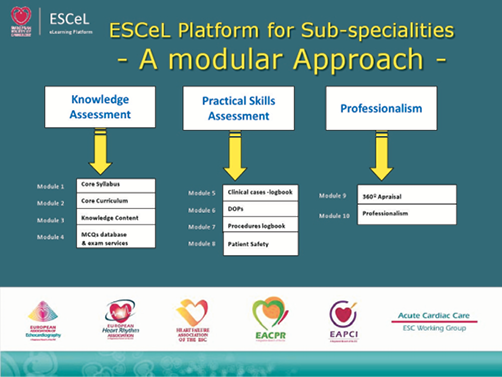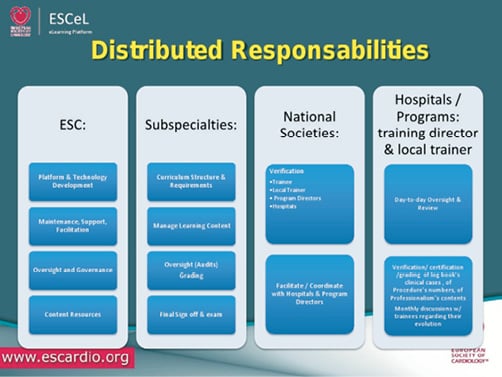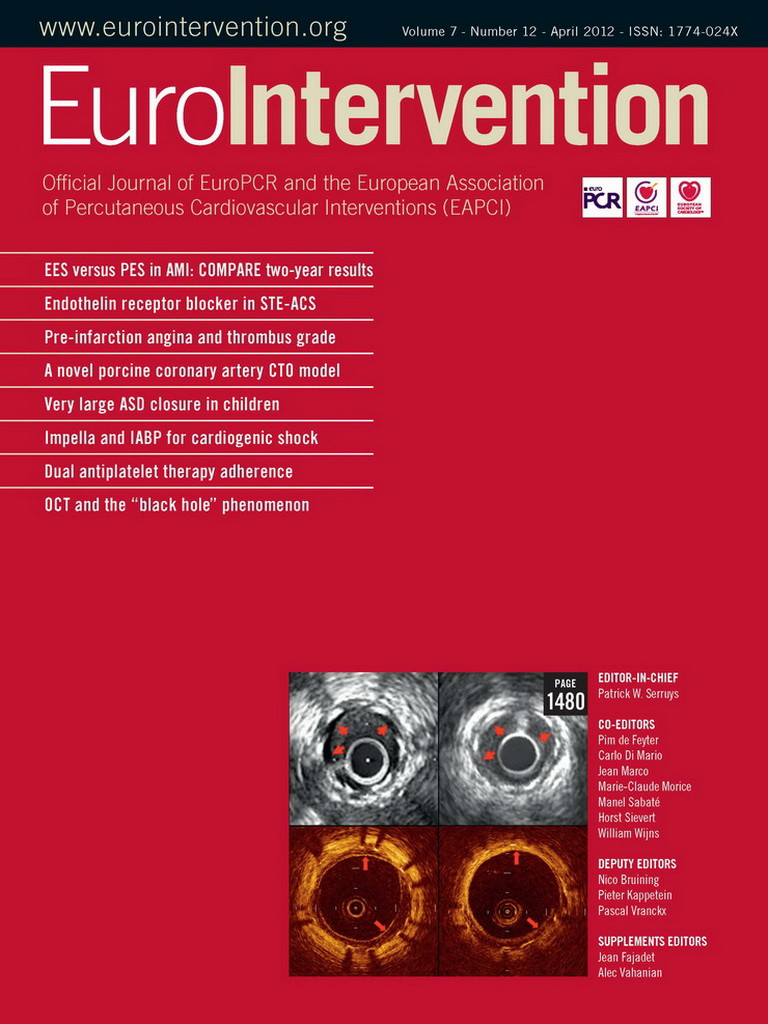Spring is upon us and bringing with it a series of profound changes in the way we approach cardiology education and training in Europe. These changes could only have taken place because of the spirit of cooperation that has been growing between the European Society of Cardiology (ESC) and its sub-specialities and the different National Associations and working groups, and these seeds, that have carefully planted over many years by all of us are now beginning to bear fruit.
This month I will introduce you to the European-wide effort in the sub-specialities of cardiology training, the ESC eLearning platform (ESCeL), a web based tool that is being developed by the ESC. I will also have the pleasure of presenting our specific contribution to interventional cardiology, the ground-breaking PCR-EAPCI Percutaneous Interventional Cardiovascular Medicine Textbook, which will establish the benchmark for years to come in our speciality – and which involves all the resources, knowledge and learning techniques gleaned from the membership of EAPCI and the PCR Family, as well as reflecting our interaction with the ESC community at large… but more on this Textbook next month.
The ESCeL Platform
Lino Goncalves is the chair of the ESC task force dedicated to developing the eLearning Platform, the EAPCI is represented on the task force by Martine Gilard. The goal is to create “the highest European standard of training and education, to as many as possible, at the lowest cost possible”. On a professional level, the taskforce emphasises that far from having any “intention to take over the role of the different sub-specialties in the training process”, the ESCeL Platform is committed to maintaining “sub-speciality autonomy” with the firm desire of leaving each individual sub-speciality to “define the procedures and content according to their needs and strategy.” Just as important on a European level, the platform insures that “the sub-specialities are the decision process”, underlining the importance of local input, by asserting that while the “ESC and sub-specialities can provide certificates of excellence” which show that a participant has completed the curricula, it is only “National Accreditation Authorities” that can, today, “deliver national certification”.
How will it work?
One of the key concepts behind this exciting tool is that, from the very beginning of its development, the idea of self-assessment has been deeply incorporated into the planning, allowing for the step-by-step participation of the user. In practical terms, we see this developing through a “modular approach”, taking, for instance, the typical Fellow in Interventional cardiology who will follow over two years three broad areas of study: knowledge assessment, practical skills assessment and professionalism (Figure 1).

Figure 1. Sub-specialities and the ESC eLearning Platform. With kind permission from L.Goncalves1.
There is a built in “give and take” to the system that ensures an interaction on every level, not only between the ESC and sub-speciality groups like the EAPCI, but also between the National Societies and pan-European working groups and organisations, as well as interaction within the individual countries between the hospitals, specialists and national groups… as well, of course, the Fellows themselves (Figure 2).

Figure 2. An interactive organisation. With kind permission from L.Goncalves1.
You could begin, as a broad example, first, with a Centre approved by the local National Society, appointing a Tutor, approved by that centre to develop and oversee the work of a Fellow. This Fellow would then work using the eLearning platform as either a base, or as a complement to further his research and clinical development. The platform can be seen as essentially a “Knowledge Platform”, from which the Fellow will work towards self-assessment exams with the goal, if they are from the host country, of passing the local certification requirements or, if they are a visiting or foreign Fellow, using the ePlatform as a gauge of their work when they leave the European Union country where they are studying.
The overall course of study will see the Fellow completing a third section as well on “professionalisation”, where the group approach –the relational quality of medical life as part of a team– is emphasised and measured; the essential interactivity of medical life is also a part of the ESCeL Platform.
At the heart of the ESCeL Platform
For certain countries, Portugal is one, the eLearning platform will sit squarely as the foundation of the advanced training in cardiology, and could even be linked to the certification procedures themselves. In other countries, such as France, it will be an invaluable plus, offering not only Fellows, but also cardiologists in general, access to the highest level of information and self-assessment. This will not be simply pure knowledge, but also concerns technical abilities and protocols, which is clearly of great interest for working interventional cardiologists as well. An individual who wants to review the latest about, say, “STEMI” can approach the ESCeL Platform –in their spare time, when they want to and when they can– and, at the end of their studies they can take the self-assessment exam to judge for themselves what they have retained and understood.
The ESCeL Platform becomes the centre of a new way of studying, centralising the necessary knowledge in a highly accessible form. The EAPCI is committed to this, and certain chapters of the eLearning Platform will come out of –and be linked to– the upcoming PCR-EAPCI Percutaneous Interventional Cardiovascular Medicine Textbook. While these interventional chapters will only form one part of the overall, general cardiology programme in the eLearning Platform, they underline our collaboration with this endeavour. And though a final decision is not yet taken, this will certainly include such key topics as bifurcations, CTO, left main, etc.
Useful for Fellows, but also for experienced cardiologists; not in competition, but a complement to existing university and national structures; a win-win situation, the eLearning Platform is a true “added value” to our busy professional lives. This version is due to be launched in May 2013 and shall aim at covering recertification, CME and general cardiology.
The EAPCI Association Summit on Education
Every ESC association can host a summit, and this year our summit will be taking place just before the Board meeting at the European Heart House on May 4th and will be about education. What else could it be about? This is the year of education at the ESC and with eLearning taking centre stage, we have convoked the National leaders and working groups together to discuss this topic.
As we said earlier, the EAPCI is deeply involved in the elaboration of the eLearning platform, through the participation of Martine Gilard in the Task Force itself, the EAPCI Education committee and my own personal commitment, so it is only natural that we choose to lead a broad discussion on the crucial issues of education and training with all Association Presidents and representatives of the Working Groups.
It is a very important aspect of my presidency that we are active participants in the ESC, and my goal is to show that there are no “one way streets”, that together, throughout Europe, we grow by accepting the challenges we face in CME and basic education together. We must work with all the players, and we must contribute actively and interactively as a whole. Together, we can say that we are proud members of a European organisation that can make progress because of the dedication of its members and the clarity of its proposals... and the ESCeL Platform is clearly one of these.
Reference

